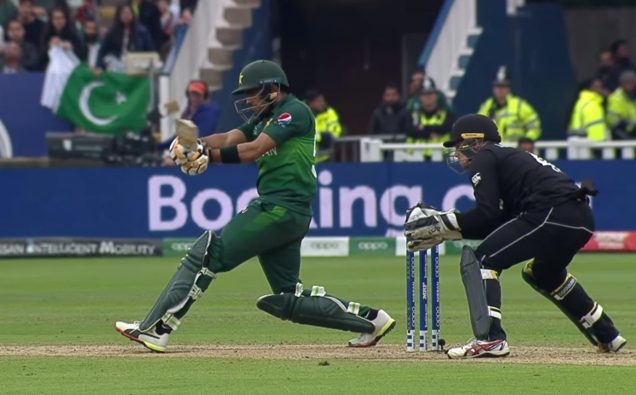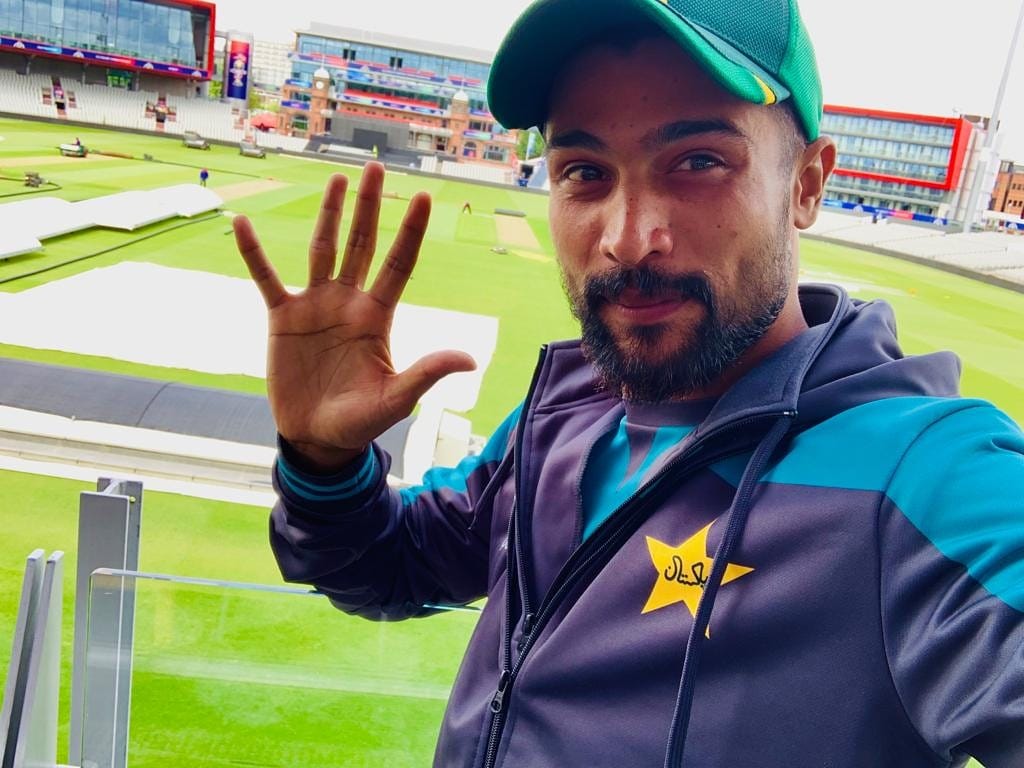
Twenty-seven years after celebrating their first ever World Cup victory, Pakistani cricketers and fans are amazed alike at the similarities that their campaigns in the two competitions have thrown up.
For many of us, who have followed Pakistani cricket’s ups and downs, it seems a pleasant journey back to the future, where batsmen Babar Azam and Haris Sohail and pacemen Mohammad Amir and Shaheen Afridi are respectively setting English grounds ablaze with their cracking shots and blistering fast bowling.
On the other hand, pre-CWC 2019 favorites and hosts England are on the verge of crashing out after back-to-back defeats, paving the way for Green Shirts to make it to semi-finals.
“It is becoming impossible to ignore the parallels with 1992,” Waqar Younis, one of the greatest fast bowlers and a former coach, wrote in a column for the International Cricket Council.
“The similarities are freaky and even though the players won’t have been thinking about it, there is no way they can put it out of their minds altogether,” he wrote, referring to resemblances between the country’s streaks in 1992 World Cup held in Australia and New Zealand and the 2019 ongoing edition of the sport.
Millions of Pakistanis have been exhilarated to find these parallels in the 1992 successful campaign of the champions and the come-from-behind bid in the 2019 CWC under way in England and Wales. Many have expressed wonder and delight in their social media posts as Sarfraz Ahmed lifts his team after a mortifying loss to rival India.
Now after defeating South Africa and New Zealand, Pakistan have relatively easier two matches remaining, which they must win to reach the semi-finals. But Pakistan’s quest for a semi-final place is tangled up with England’s fortunes. Pakistan will secure a pre-final berth if they win their matches against Afghanistan and Bangladesh and at the same time England lose either of their matches against India or New Zealand. And if it rains during any of Pakistan’s contests, it would complicate things.
But so far, it’s the 1992 and 2019 similarities in Pakistan’s campaigns that have blown cricket minds around the world.
Babar Azam's hundred is Pakistan's first World Cup century scored by a non-opening batsman since…1987!#CWC19 | #NZvPAK | #WeHaveWeWill pic.twitter.com/EJzm7kMHVy
— ICC Cricket World Cup (@cricketworldcup) June 26, 2019
Both in 1992 and 2019 Pakistan’s performance cards read like this – loss, win, an abandoned match, two losses and two wins. Mystifying further these two streaks is the fact that in both world cup editions, Pakistan’s seventh contest has been against New Zealanders. On both occasions, it is Pakistan that broke the Kiwis’ unbeaten run to the coveted Cup.
Between these 27 years, Pakistan has seen its splashing triumphs – 2009 ICC World Twenty20 Champions, 2017 ICC Champions Trophy – and several setbacks, especially the loss of cricket to terrorist violence during the height war on its Afghan border.
The side has also earned the dubious title of being the most unpredictable cricket outfit in the world, sometimes due to internal wrangling and politicking.
Two of the players who were part of the 1992 champion team have assumed greater roles in their different positions.

Pakistani Left arm fast bowler
Mohammed Amir at Old Trafford Stadium
June 14, 2019
Image Credit: Mohammed Amir/ Facebook
Imran Khan, the skipper whose picture with world has become a memorable moment – is the prime minister of the country. Though bogged down in a myriad of political and economic challenges, he issued a special message for the World Cup campaign, asking cricketers to play confidently and not buckle under pressure.
Inzamam ul Haq, a new mercurial batsman in 1992, is now the chief selector, though a much different figure – a burly man sporting a long beard.
The parallels have pushed Pakistan to the center of the World Cup 2019 focus. Will they be champions again and not get lost in cricket’s wonderland. But at a much larger level for their nation, the cricketers have a point to prove for Pakistan, which itself has wobbled economically and politically between democracy and military dictatorships. A cricket world cup win will be a big boost for the nation craving for self-confidence and esteem.















